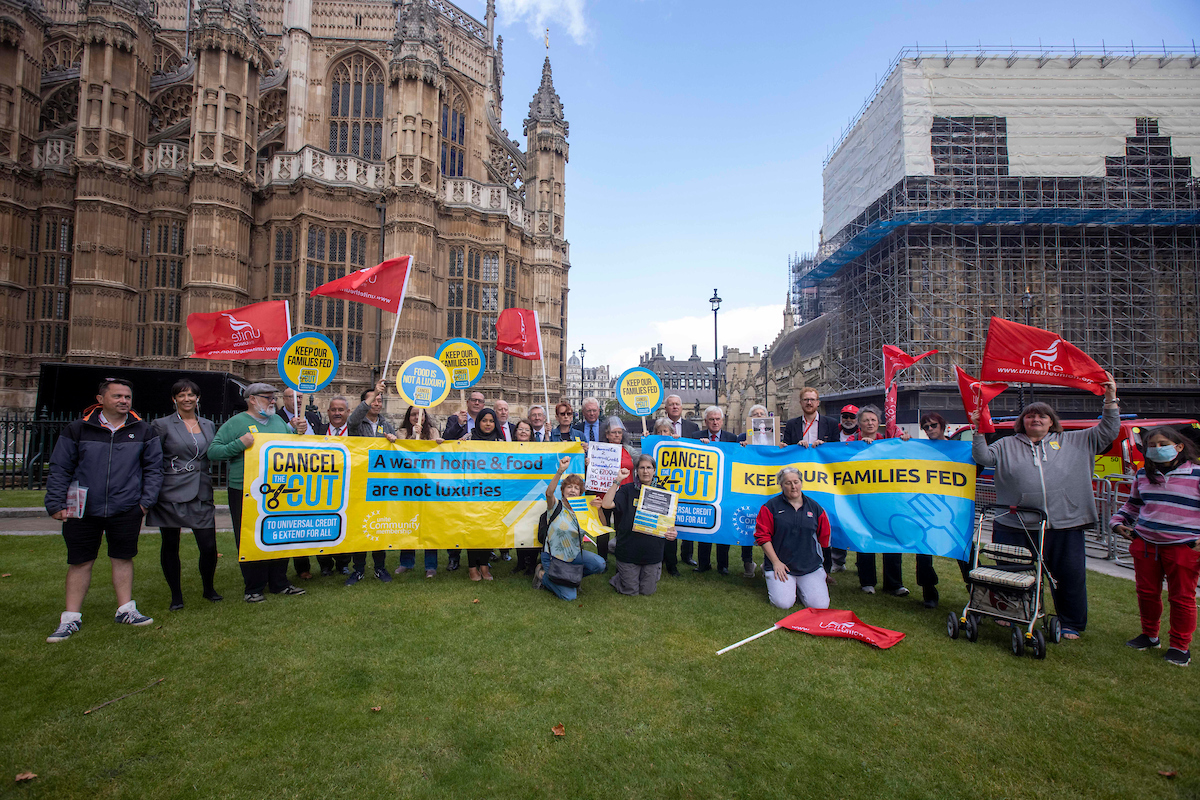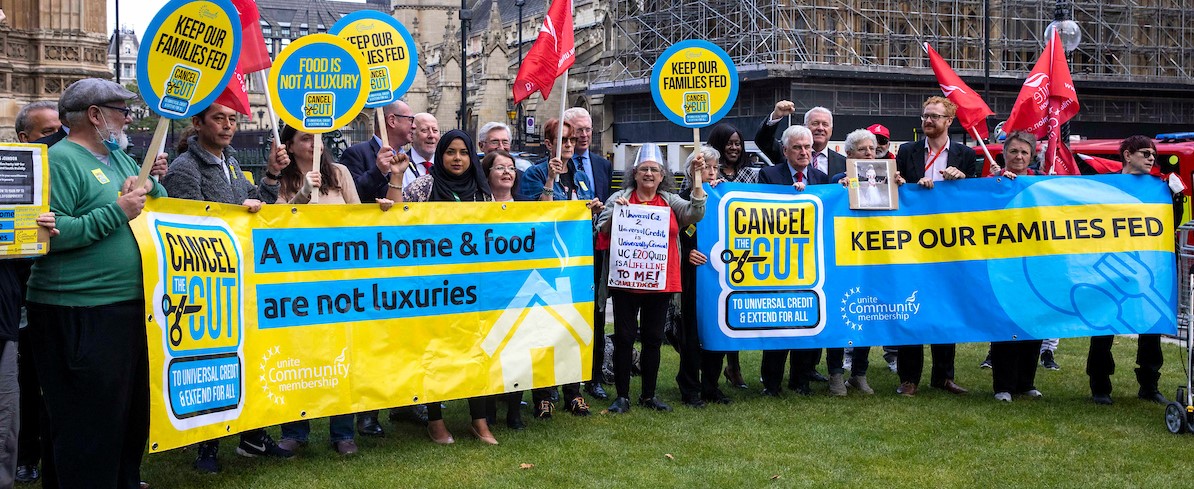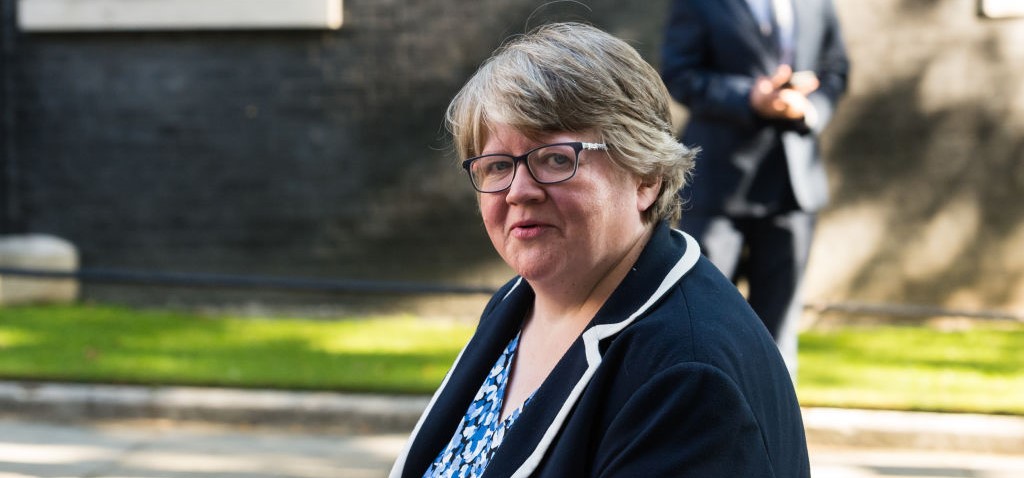Universal Discredit
On one day in May, the free paper, Metro, gave readers a surprise. â€Universal Credit Uncovered’ announced the headline in all caps, the â€o’ in â€Uncovered’ designed as detective’s spy glass.
But what looked like a hard-hitting expose at first glance was in fact – if you read the small print in the corner – an â€advertisement feature from the Department of Work Pensions’.
The four-page spread, part of a DWP campaign that cost the taxpayer more than £200,000, claimed to “set the record straight” on Universal Credit. But all it did – besides eliciting dozens of complaints to the Advertising Standards Authority – was highlight the welfare reform’s abject failures.
In fact, that very same day, the UN Special Rapporteur on extreme poverty Philip Alston published a report that slammed â€the severe hardship’ Universal Credit has wrought.
It was also the same day MPs heard evidence of women on Universal Credit selling sex just to survive.
Unite’s own exclusive research on Universal Credit, which includes a survey of more than 1,000 Universal Credit claimants, sheds light on the misery facing those who’ve found themselves signed onto the welfare reform.
The survey found over 75 per cent, said their experience of Universal Credit – which rolls several benefits, such as housing benefit, jobseeker’s allowance and child tax credit into one – has been unambiguously â€bad’. A significant majority of Universal Credit claimants said they’d skipped meals and could not afford basics such as clothing, transport, or utility bills, with 78 per cent reporting they relied on support from family and friends just to survive.
Unite has highlighted the many design flaws built into Universal Credit, the most devastating of which is the five-week wait period before claimants receive their first payment. Left with nothing, they’re forced to beg for an advance from the DWP. But since the advance is only a loan, claimants are pushed into debt from the very outset.
Unite’s survey found that nearly half said that Universal Credit was what first put them into debt, while an additional 30 per cent said it placed them even further into debt.
One survey respondent said the debt this advance placed them under led them to “spiral into depression and anxiety” while another said they were straight away “left in rent arrears” and “served with an eviction notice”.
And while the government pledged that Universal Credit would make households better off, Unite has found the exact opposite. That’s because the Universal Credit system institutes cuts as a fundamental part of its design.
Benefit rates have been frozen and work allowances slashed since 2016. While the family element in tax credits has been removed, child tax credits have also been limited.
The Resolution Foundation estimated that working families on average will be ÂŁ625 a year worse off than in the previous system, and single parents will be hit particularly hard. As for the DWP’s claim that Universal Credit â€makes work pay’, Unite’s research has found instead that it harms working people the most. For every ÂŁ1 a low-paid person on Universal Credit earns, 63p is clawed back – a tax far beyond the 45 per cent top rate of tax levied on the highest earners.
Part-time work that suits those who care for children or relatives is robbed from Universal Credit claimants, many of whom are forced to show the DWP they are seeking to increase their hours or enhance pay – or else face being sanctioned.
And if their employer submits their pay late, or if pay dates clash with Universal Credit assessment periods – as they often do – entitlements are slashed.
“When I started work, the DWP made the assumption that I was earning the same amount every month as the first month,” one respondent wrote. “I was with an agency – things got messy.”
But the greatest collateral damage in the Universal Credit war waged against ordinary families are children. Unite’s survey found that 79 per cent of parents found it hard to make ends meet during the school holidays.
Nearly 70 per cent of respondents said they skip meals while 41 per cent have to use food banks.
To highlight the issue of holiday hunger, Unite Community staged a national day of action on August 2 to stop Universal Credit.
In 63 separate events in England and Wales, campaigners took to the streets to protest the shocking rise of children in families claiming Universal Credit going hungry during the holidays because they are not able to receive free school meals.
Unite Community set up a number of holiday schemes this year, and like longer running projects in Devon and Norwich have become massively popular.
But Unite believes such projects, though critical in offering solidarity to struggling families, can only be part of the solution as the situation becomes increasingly dire.
Although Universal Credit will not be fully rolled out until 2023, each year the number of claimants doubles. And while the government claims there will be a â€managed migration’ of people onto UC, more and more people are being forced to sign on and drop their legacy benefits if they’ve experienced any change in circumstances – even something as innocuous as a change in mobile number.
This under-the-radar rollout of Universal Credit has seen the number of claimants surge from 1m in 2018 to 2.3m now. Shockingly, over a third of these are in employment, belying the notion that work always pays.
Unite head of community Liane Groves said that Unite’s research again highlights the need to scrap Universal Credit entirely.
“Universal Credit is causing misery and suffering as the survey results clearly show,” she said. “Hundreds of thousands of children in the UK are not being fed properly because their parents don’t have the money to make ends meet. Unite is demanding that social security payments are sufficient to provide families with enough money to buy healthy food for their children.”
Worried UC will affect you?
- Talk to your union rep and employer now;
- employers have a duty to provide info on wages each month so the DWP can calculate UC payments. They must do this in time or payments can be affected;
- you may need to ask for more hours, or look at how often they are paid. Weekly, fortnightly paid workers can end up out of pocket. Get help from your rep
This feature first appeared in uniteWORKS, Autumn 2019
 Like
Like Follow
Follow


